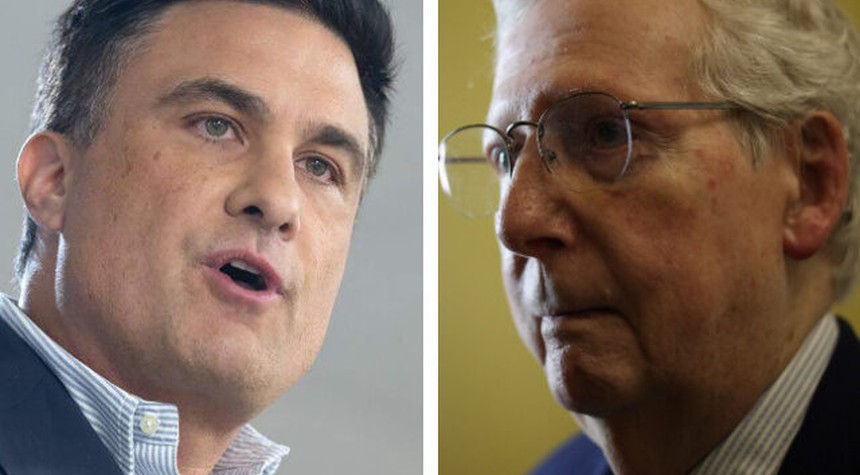The battle lines in Kentucky’s Republican Senate primary are being drawn with unusual clarity, and they run straight through the heart of President Trump’s trade policy.
Senate candidate Nate Morris has planted his flag firmly in Trump territory, offering full-throated support for the administration’s tariff strategy even as the state’s senior senator, Mitch McConnell, continues his public opposition to the president’s trade war.
This is not some minor policy disagreement being hashed out in committee rooms. This is a fundamental clash over the direction of the Republican Party and what it means to represent working Americans in the twenty-first century.
McConnell issued a statement Tuesday that pulled no punches. He argued that protectionists in Washington are peddling fiction when they claim recent months have vindicated indiscriminate trade barriers against allies and adversaries alike. The Senate Republican leader pointed to Kentucky’s auto and appliance manufacturing sectors, stressed by disrupted supply chains. He highlighted the state’s nearly 70,000 family farms suffering from retaliatory tariffs. He noted bourbon caught in the crossfire from the beginning. His conclusion: consumers are bearing the true costs.
McConnell was among just five Senate Republicans who voted to terminate Trump’s tariffs on Brazil, a vote that now hangs over this primary like a storm cloud.
Morris, who has built his campaign on unwavering support for Trump’s America First platform, fired back with the kind of direct language that leaves little room for interpretation. He questioned how anyone could fail to understand that Trump fights for American workers while career politicians do not.
The challenger went further, declaring Trump’s trade policy and tariffs an unqualified success. He cited revenue generation, pressure on Communist China, job protection, and wage increases for American workers as evidence. Morris framed the choice in stark terms: globalists versus America First, with no middle ground available.
He drew a direct line from Barack Obama to Mitch McConnell, placing both in the globalist camp that refused to prioritize American interests for decades. In Morris’s telling, the country has been taken advantage of, and Trump’s approach represents a necessary correction.
Morris also took aim at his primary opponent, Representative Andy Barr, suggesting Barr would vote like McConnell in opposing the president’s agenda. He emphasized that Trump carried Kentucky by thirty points and deserves a senator who supports his economic policies without reservation.
Barr has stated his belief that the ideal tariff level is zero, a position that places him closer to traditional free-trade conservatism and further from Trump’s economic nationalism.
An advertisement released by the Club for Growth added another dimension to the race, claiming Barr voted for legislation forcing corporate America to adopt diversity, equity, and inclusion policies.
What we are witnessing in Kentucky is a proxy war for the soul of the Republican Party. The outcome will signal whether Trump’s economic populism has permanently reshaped conservative politics or whether traditional free-market principles still command loyalty among Republican voters. Kentucky Republicans will render their verdict soon enough, and the rest of the country will be watching.
Related: Ocean County’s Orthodox Jewish Councils Make Joint Endorsement in Governor’s Race


